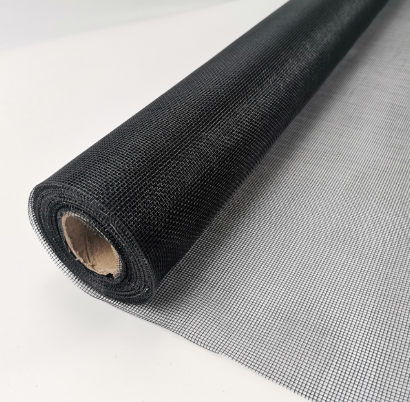Insect screens are an essential part of maintaining a comfortable, pest-free environment in homes, offices, and outdoor spaces. The material used for the mesh is crucial in determining the effectiveness, durability, and aesthetic of the screen. With so many options available, it can be challenging to choose the right insect screen mesh material for your needs. This guide will help you understand the different types of mesh materials, their advantages, and which is best suited for your specific application.
1. Understanding Insect Screen Mesh
An insect screen, or mesh, is designed to keep insects like mosquitoes, flies, and other pests out of buildings or outdoor spaces. The mesh is typically installed on windows, doors, and patios to allow for ventilation while preventing unwanted creatures from entering. The quality and type of material used affect the mesh’s strength, visibility, and resistance to weather elements.
2. Common Insect Screen Mesh Materials
There are several different materials used for insect screens, each with unique properties. Let’s explore the most popular options:
2.1. Fiberglass Mesh
Fiberglass is one of the most widely used materials for insect screens due to its affordability and versatility. It’s made from woven fiberglass strands coated with a protective layer of vinyl, which makes it resistant to corrosion and UV damage.
2.1.1. Advantages
- Cost-effective and widely available
- Lightweight yet durable
- Resistant to rust and UV degradation
- Offers good visibility and airflow
2.1.2. Disadvantages
- Can be prone to damage from sharp objects or extreme weather
- Not as durable as metal mesh options
2.2. Aluminum Mesh
Aluminum insect screens are another popular choice due to their strength and resistance to corrosion. Aluminum is more durable than fiberglass and can withstand harsher environmental conditions, making it ideal for outdoor installations.
2.2.1. Advantages
- Highly durable and resistant to rust and corrosion
- Stronger and more resilient than fiberglass
- Available in various colors
- Good air circulation and visibility
2.2.2. Disadvantages
- Can dent or bend more easily than fiberglass
- Heavier and more expensive than fiberglass options
2.3. Stainless Steel Mesh
Stainless steel mesh is an extremely durable option for insect screens. It is resistant to rust, corrosion, and extreme weather, making it ideal for harsh climates or areas near the coast where saltwater can cause damage to other types of mesh.
2.3.1. Advantages
- Highly durable and long-lasting
- Resistant to rust, corrosion, and extreme conditions
- Perfect for high-security areas or areas with high pest pressure
- Provides excellent protection from small insects
2.3.2. Disadvantages
- Expensive compared to fiberglass or aluminum
- Heavier and less flexible
- Can be more difficult to install
2.4. Polyester Mesh
Polyester mesh is another alternative that combines the benefits of flexibility and durability. It is often coated with PVC to improve weather resistance and prevent fraying. This type of mesh is typically used in light-duty applications, such as residential windows or patio screens.
2.4.1. Advantages
- Flexible and easy to install
- Resistant to UV degradation
- Affordable and lightweight
- Good airflow and visibility
2.4.2. Disadvantages
- Not as durable as aluminum or stainless steel
- Can wear out quicker in areas with harsh conditions
2.5. Copper Mesh
Copper mesh is another premium material known for its unique appearance and corrosion resistance. It is commonly used in higher-end installations, particularly where aesthetic appeal is important or in areas prone to saltwater exposure.
2.5.1. Advantages
- Highly resistant to corrosion and rust
- Attractive appearance that ages well
- Effective at keeping small insects out
2.5.2. Disadvantages
- More expensive than other materials
- Prone to discoloration and patina over time
3. Key Factors to Consider When Choosing an Insect Screen Mesh Material
When selecting the right insect screen mesh for your needs, several factors should be considered:
3.1. Durability
Durability is critical if your screen will be exposed to harsh weather conditions or heavy usage. Stainless steel and aluminum are the most durable, while fiberglass and polyester are more suitable for less demanding environments.
3.2. Mesh Size and Insect Protection
The size of the mesh openings plays a role in preventing insects from entering. Smaller mesh sizes (e.g., 20 x 20 mesh or higher) are ideal for keeping tiny insects like mosquitoes out, while larger openings (e.g., 16 x 14 mesh) might be sufficient for larger insects like flies.
3.3. UV and Weather Resistance
If your screens will be installed outdoors, choosing a mesh material that is resistant to UV rays and weather conditions is essential. Materials like fiberglass, polyester, and stainless steel are better suited for long-term outdoor exposure.
3.4. Aesthetic Appeal
Some materials, like copper and stainless steel, offer an aesthetic appeal that may be important for certain installations. Choose a mesh that complements the look of your home or business while also offering functional benefits.
3.5. Cost
Cost is a significant factor when selecting an insect screen. Fiberglass and polyester are the most budget-friendly options, while copper and stainless steel tend to be more expensive due to their durability and premium features.
4. Conclusion
Choosing the right insect screen mesh material depends on several factors, including durability, aesthetic preference, environmental conditions, and budget. Fiberglass and polyester are ideal for general residential use, while aluminum and stainless steel are perfect for more robust, long-lasting installations. Copper offers a premium option with superior corrosion resistance. By evaluating your specific needs, you can make an informed decision and ensure that your insect screens provide effective protection while enhancing the comfort and aesthetics of your space.


